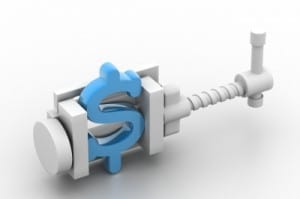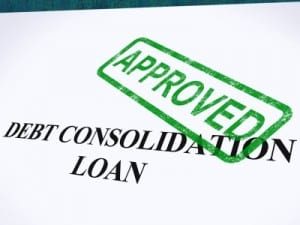Debt, in general, can be extremely difficult to get a handle on. Between the misleading terms and harassing creditors, you may feel lost in a sea of uncertainty. Fortunately, there are ten easy ways for how to pay off debt fast that you can tackle and attain financial liberation once and for all.
How to Pay Off Debt Fast – 10 Easy Ways:
1. Contest Credit Card APR Increases:
If you feel at the mercy of the creditors and think you have to accept all their “conditions,” think again. Rate-jacking has become a widespread trend to which far too many people fall victim. Luckily, interest hikes can be contested if you contact the company within 60 days. The downside is you won’t be able to use the card during that period but it’ll be a good opportunity to repay what you owe at the lower rate.
2. Opt for Credit Union Loans or CDFI’s:
Credit unions are non-profit organisations that generally offer cheaper loans because they are owned and operated by their members. These loans are generally smaller in amount but they do not incur the general fees (set-up, administration, early redemption, etc.). At most, a credit union can charge 2% interest a month. This low rate makes it a much better value than any payday or doorstep loans. Other advantages include:
- Avoiding the large banks
- Supporting a community-based program
- Convenience (there are over 450 credit unions in Britain so you’ll have no problem locating one near you)
Community development finance institutions (CDFI’s) are comparable to credit unions except they are not-for-private-profit organisations that help individuals who can’t access the mainstream financial services. Explore these options to limit your debt.
3. Stay Clear of Payday Loans:
Stay clear of payday loans at all costs. In addition to being outrageously expensive, (some APRs are over 4,000%) they make use of the continuous payment authority that is in place to make requests for payment in case a transaction hasn’t already been verified. What does this all mean? This means that you are likely to dip into the red, so only take out a payday loan as a last resort.
4. Give Your Credit Score a Boost:
One of the easiest ways to qualify for lower credit card rates is to have a good credit score. Use a service like Callcredit, Equifax, or Experian to get a detailed report of your credit score and history. Once you have a solid understanding of where you stand, you can start working to improve it. Also look out for any mistakes on your file which could have a serious impact on you score.
5. Ask for an Overdraft:
Going into unauthorized overdraft is guaranteed to be a costly mistake accompanied by all sorts of extra charges. To avoid this financial fatal error, talk to your bank about increasing your authorized overdraft. They’ll be more likely to work with you if you speak with them ahead of time rather than arguing with them after the fact.
6. Seek Debt Consolidation:
7. Pay Off Debt First:
Before you start stashing away extra cash in your mattress be sure to pay off your existing debt. It doesn’t make sense to invest your current earnings in a savings account in you are constantly hounded by creditors for the money you owe. Right now, the best savings accounts pay around 2.3% AER. Compared to the average interest rate of 18% on a credit card, you’d be better off repaying what you owe.
8. Patience Is a Virtue:
Tackling your finances is no easy feat so just take it slowly. Don’t rush into any programs before you fully understand the terms and conditions as well as the current affair of your budget. Practice patience and take it one step at a time.
9. Budget:
There’s no better tool for lowering your debt than a well constructed budget. In essence, a budget is just a spending plan that takes into account your monthly inflows and outflows of cash. By documenting how much money comes in versus how much goes out, you can determine how long and how much you should dedicate to your debt.
10. Start Small:
If you’re bogged down with debt and don’t know which ones to pay off first, consider making a scale of your lenders from highest interest rate to lowest. Pay off the debts with the high interest rate first. Also take into consideration the “priority” debts. These include:
- Mortgage or rent arrears
- Gas and electricity arrears
- Council tax arrears
Getting a handle on your debt doesn’t have to be impossible. Keep these ten suggestions for how to pay off debt fast in mind and you’ll be on the right track to financial freedom.
Related Posts:
1) Ten Ways Stock Investments Can Be Used With Your Credit Card Debt Reduction Strategies
2) How to Clear Credit Card Debt By Clawing Your Way Out
3) How Does Bankruptcy Work? What You Should Know Before and After Filing
Image courtesy of FreeDigitalPhotos.net




Great post! When I was paying off my credit card debt I kept moving it around to 0% cards and throwing all my side hustle money at it until it was gone!
Thanks for the tips. I think these are all quite useful.
I like your pay debt off first tip. I think too many people get carried away with stashing away money when they still have debts to pay.
A good budget is definitely helpful! It can help you see where you are overspending, and then you can hopefully apply that extra money towards your debt.
Another great tip is to start buying things online whenever possible. You might have to wait longer to obtain the item but you’ll definitely get it cheaper!
Great tips to ponder. Definitely, stop borrowing money if we have pending loans to pay. First thing to do is to pay the previous debt. A budget plan will help us not to borrow money because we are working on certain amount of cash that we should only spend in a particular time. If our budget is not sufficient, find opportunities to earn more and will sustain your lifestyle. Always, save first!
Thanks for these very useful tips. I used to have debts when I got my first job. But now that I have my own family to support, I become more responsible with my finances and with how I deal with debts.
A good article; paying off debt truly requires an action plan. In addition to credit union loans, there may be the option of borrowing from a peer-to-peer lender; this type of service has become more widely available, although a reasonable credit score may still be required. Point 9. about Budget is critical, as part of dealing with the cause of the debt.
A good article to avoid increasing debts,
Its even better to avoid any debts at all.